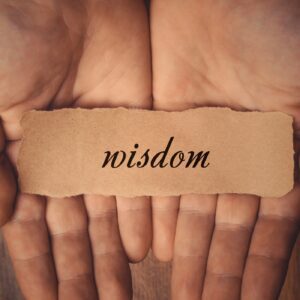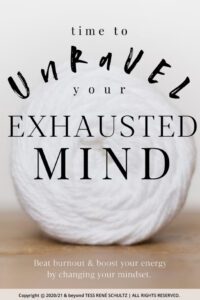Limiting beliefs that erode self-trust and confidence are invisible, yet they quietly shape how you think, decide, and act. Yet self-trust is the foundation of lasting confidence and resilience, it’s what allows you to move forward without constant second-guessing.
But when old beliefs sabotage your judgment, even small decisions can feel overwhelming.
So it’s worth the time to look under the hood and discover what is really influencing the feelings and thoughts you experience daily.
Let’s explore four of the most damaging beliefs and how to replace them with steadier trust in yourself.
Table of Contents
1. Fear of Consequence Weakens Confidence

Fear of “what ifs” keep you stuck; courage grows by acting anyway.
“…it’s time to look under the hood and discover what is really influencing the feelings and thoughts you experience daily.”
One of the biggest reasons people hesitate to trust themselves is the fear that they won’t be able to handle what happens if they make the “wrong” decision. This belief keeps you stuck in indecision, overanalyzing every possible outcome, and avoiding choices altogether.
Why this limiting belief keeps you stuck in indecision:
At its core, this fear comes from a lack of confidence in your ability to adapt, problem-solve, and recover. It makes every decision feel like a life-or-death scenario when in reality, most choices are reversible or manageable.
How to Overcome It:
- Reframe your fear: Instead of asking, “What if this goes wrong?” ask, “What if I can handle it no matter what?”
- Look at your past resilience: Think about difficult situations you’ve navigated before. You’ve likely faced setbacks and survived them—what makes this time different?
- Take action despite fear: Recognize that fear doesn’t mean danger—it just means uncertainty. The more decisions you make, the more you prove to yourself that you can handle their consequences.
Every choice is practice and each step proves you can withstand uncertainty.
2. The “Magic Bullet” Trap

Waiting for perfect clarity often creates more chaos than calm.
When limiting beliefs tell you there’s one magic solution
Many people hesitate to trust their own decisions because they believe there’s a single perfect solution one “magic bullet” that will guarantee success, happiness, or security. This belief makes every decision feel like a high-stakes gamble, where choosing wrong means failure or a threat to their belonging.
The problem? Life doesn’t work that way. Most decisions are not binary, and multiple paths can lead to success. When you cling to the idea of a perfect answer, you delay action, waiting for absolute certainty that will never come.
How to shift this dream-state into solutions:
- Accept that perfect solutions don’t exist: Instead of trying to find the “best” decision, aim for a “good enough” one that aligns with your values and goals.
- Commit to learning along the way: Every decision provides feedback. If something doesn’t work out, you gain insight that helps you make better choices in the future.
- Take small steps instead of waiting for clarity: Clarity comes from action, not endless thinking. Start with small, low-risk decisions and build confidence as you go.
Action creates the clarity that overthinking never will. In turn, action builds your sense of self-worth, seeing that you can be decisive and follow through: even when it feels new and awkward.
3. Trusting Others More Than Yourself

Your wisdom is always within reach.
How deferring to others erodes self-trust and confidence
Do you find yourself constantly looking for external validation before making a decision? Do you assume that other people experts, mentors, friends know better than you? While seeking advice can be helpful, constantly deferring to others erodes your self-trust.
This belief stems from a fear of making mistakes and a tendency to underestimate your own knowledge, intuition, and experience. You might tell yourself, “I’m not qualified enough” or “I don’t know enough to decide.” But the truth is, no one knows your life, goals, and desires better than you do.
Short scripts to help you trust your choices more than others’:
- Recognize that others are not always right: Even experts get things wrong. Just because someone else has an opinion doesn’t mean it’s the best choice for you.
- Balance external input with internal wisdom: Gather advice, but always ask yourself: “Does this feel right for me?”
- Practice making decisions without outside input: Challenge yourself to make small daily decisions—what to eat, what to wear, what to do next—without asking anyone else for their opinion.
The more you act from your own voice, the steadier your confidence grows.
Discover what more space feels like
Tired of feeling mentally overloaded and stuck in overthinking?
This free mindset guide will quiet racing thoughts and recharge your energy.
✦ I’m Ready to Find More Ease ✦ →

4. Waiting for Permission

You already hold the key to your own next step.
When early conditioning locks you into hesitation
Many people struggle with self-trust because they subconsciously wait for someone else to “approve” their choices. Driven by a fear of rejection, this belief stems from childhood conditioning: if you were taught to always seek permission before acting, you may carry that mindset into adulthood.
This belief manifests as hesitation, procrastination, and a reliance on external validation before taking action. It keeps you in a passive role, waiting for someone else to tell you it’s okay to move forward.
Ways to ease procrastination:
- Acknowledge your autonomy: You are an adult. You do not need permission to pursue your goals, change your mind, or make decisions for your own life.
- Start small: If making big decisions feels overwhelming, start by asserting your independence in low-risk areas. Choose where to eat, what to watch, or how to spend your free time without asking for input.
- Affirm your right to decide: Remind yourself, “I am capable of making decisions for myself.” Say it out loud if needed.
Pair these affirmations with doing something you enjoy to really lay another brick in the foundation of self-trust!
Final Thoughts
Self-trust is like a muscle, it strengthens with use. The more you make decisions, face challenges, and trust your ability to handle the outcomes, the more confidence you build.
The more you challenge limiting beliefs that erode self-trust and confidence, the more resilient and decisive you become. You are already capable of handling consequences, learning from action, and choosing from your own inner wisdom.
Take the first step. It’s ok to fumble. You’ve got this.
Frequently Asked Questions
Q1. What are limiting beliefs?
They are hidden assumptions that narrow your choices and keep you stuck. Recognising them is the first step to changing them.
Q2. How do limiting beliefs affect self-trust?
They cause you to doubt your own judgment and rely too heavily on others. Over time, they weaken your confidence to decide for yourself.
Q3. Can I rebuild self-trust after years of self-doubt?
Yes. Self-trust is built like a muscle, with repeated action. Each small choice you own strengthens it.
If you’re beginning to see how much these beliefs shape your daily choices, this is the point where the right support can help you rebuild faster and steadier.
Ready to trust yourself again?
When limiting beliefs keep you second-guessing, it can feel exhausting to make even simple choices. The truth is, you don’t have to untangle this alone with the right guidance, you can rebuild self-trust and confidence step by step until it feels natural.
“Tess helped me quiet the constant second-guessing and finally trust my own choices. I feel steadier and more confident in everyday decisions.” — Emma F.
